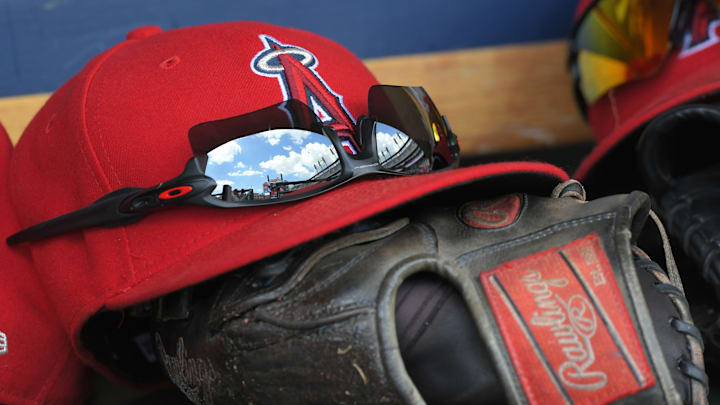Farm system rankings are out and the experts don't have kind things to say about the Angels' minor league talent. Baseball America ranks the system dead last. The Athletic's Keith Law agrees, ranking the Halos 30th. ESPN was slightly more kind, ranking the farm teams at no.28, just two spots from rock bottom.
Is it really true that the Angels have such a dreadful system? The pundits have claimed this for years, but before diving into that there are a couple of things to understand.
First, most prospects fail. For example, former Angels' starter Griffin Canning was a top-100 prospect as recently as 2019 -- he led the league in earned runs allowed in 2024. Current Angels, Scott Kingery and Carter Kieboom, were both top prospects with Kingery ranking as high as 35th per MLB.com and Kieboom rising to 15th overall per Baseball America. Now both are long-shots to make the team as bench players.
Given the inherent volatility, from bust potential to injuries to off-field concerns, succeeding as a prospect is not guaranteed, no matter how highly touted one may be. That's why when players like Jo Adell, ranked the no. 3 overall prospect in 2020 by Baseball America, become even average players it's a win for the organization.
The second piece to consider is the point of a minor league system. While it can serve several purposes, the main purpose of a farm system is to feed talent to the big league club. Traditionally, this is through player development, however, it can also serve as a vehicle to add veteran talent via trades.
Looking at the Angels' roster through this lens, with players like Zach Neto, Nolan Schanuel, José Soriano, Ben Joyce, etc., it would seem as if the Angels have been pretty successful on this front.
One criticism of the Angels' farm system is warranted
On many teams, players like Neto, Schanuel, and O'Hoppe would just now be knocking on the door of the majors rather than entering their second or third years. Just imagine how much rosier the outlook would be if those guys were still considered prospects like Christian Moore is today.
LAA gets penalized for their strategy of identifying and aggressively promoting major league talent, and as stated above, this means the rankings don't paint an accurate picture of how effective the system is at feeding talent to the big-league roster.
With that said, there is a valid criticism that the Angels must address to have their system taken more seriously, and ultimately be more productive. The issue that must be solved is the lack of depth within the system.
Along with Christian Moore, there's a good chance the Angels' other two top picks last year, Chris Cortez and Ryan Johnson, make their big league debuts at some point this season. Similarly, over the last few seasons, the most talented players in the Halos system spent very little time in the minor leagues.
While there's nothing wrong with targeting near-MLB ready prospects at the top of the draft, the team needs to utilize other avenues to fill in the depth behind them. One vehicle where they have largely failed is through international amateur free agency.
Sure, you can look at top prospect lists and see names like Nelson Rada, Joswa Lugo, and Denzer Guzman and think they're doing fine. Beyond those three, there isn't much there. Look at the most recent crop of international free agents as an example.
Gabriel Davalillo is an amazing addition, but behind him, the team took a spread-the-wealth approach adding quantity over quality to their system. While that may seem like an acceptable way to build depth, it really isn't given the volatility of signing such young players. The only real true way to add depth via this method is to collect as many high-end talents as possible with the understanding that most will flame out.
Given that the upper levels of the system quickly thin out due to the Angels targeting polished college players with their top draft picks, adding high-end talent by going over slot value later in the draft and spending more bonus pool money on smaller, more impactful international free-agent classes is the way to go.
Until the Angels do that, their system will rank near the bottom, which has real-world consequences. No one really cares where pundits rank the system, however, the perception of the quality of prospects a team has impacts the currency they have on the trade market.
Unfortunately for the Halos, they don't have the prospect capital to swing a big trade to improve the big-league club. They need their top, nearly ready prospects, and what lies beneath that tier simply isn't enough to fetch anything of value on the trade market.
The Angels will consistently rank at the bottom of these rankings until they adapt their strategy to build depth alongside their ability to consistently unearth near-MLB-ready players, and that ultimately handcuffs the team moving forward.
